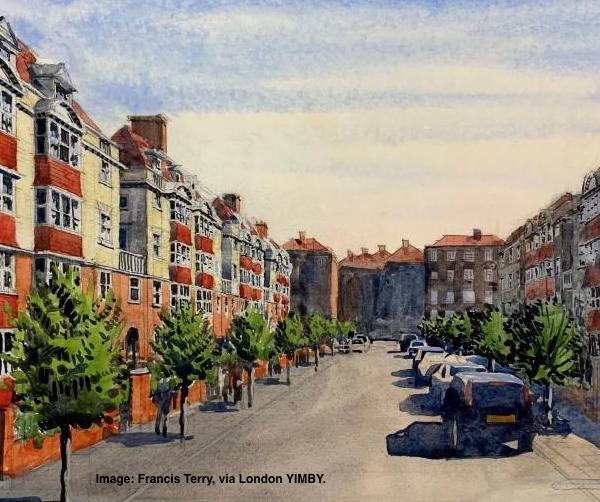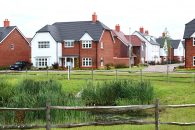Should beauty be at the centre of our planning system?
By Ruby Burdett, Consultant
The late Roger Scruton alongside co-author Nicholas Boys Smith, coined the idea of “building better, building beautiful” (BBBB). The now government endorsed report, has been labelled a radical amalgamation of politics and philosophy. Arguing that beauty is not subjective, Scruton asserts that we are obligated to safeguard and encourage public beauty.
The report heavily criticises David Cameron’s 2012 planning regime for being geared towards ugliness. According to the BBBB, the planning system is solely driven by mass development, maximum profit and innovation, while the beauty factor is paled into insignificance. Considering this, a suggestion that is emphasised heavily by the report is to encourage the government to dismiss ugly developments.
In light of Jack Airey’s recent appointment to No.10 as special planning advisor, this lack of focus on beauty is likely to alter. Considering that prior to his appointment, Airey’s research focussed much on raising housebuilding beauty standards, it is likely that the planning system will soon see significant changes.
While the likelihood of change to the planning system seems almost certain, it is up for debate whether beauty should be at the focal point. One question that comes into play is whether the government are qualified to define beauty on behalf of the country. Scruton’s notion that beauty is objective faces inevitable opposition from many who hold the view that beauty is in fact dependent on individual perception. If one man’s treasure can be another man’s garbage, there is a risk of the government becoming a judge on what is beauty.
The report has raised the eyebrows of those who don’t value aesthetic when it is pitted against other issues within the planning system. During a time where the gap between the current housing supply and the amount needed for everyone to have a decent home is more than one million, doesn’t quantity and affordability trump beauty? The BBBB insists it is not anti-development but that it is simply advocating for beauty to play a part in the planning system. However, if planning consent can be refused based on ugliness as the report suggests, reaching housing targets will inevitably be hindered.
Amongst the radical call to urge the government to reject ugly developments, are milder and arguably useful suggestions. The report suggests planting two million trees on streets, in order to make new housing developments more attractive, thereby passing planning more easily. The BBBB further urges to developers to plant a fruit tree for every house they develop, to improve public well-being. While these reforms may not solve the housing crisis, they will make areas more liveable.
Perhaps a space should be established for beauty within the planning system, but it doesn’t seem feasible for it to be at the centre, and to the detriment of development.

Strategic land and site promotion
“Chelgate gives a real insight into political thinking at all levels and all political persuasions, …

Energy and infrastructure
From new nuclear and unconventional gas to renewables, waste and airports, our team has worked …


